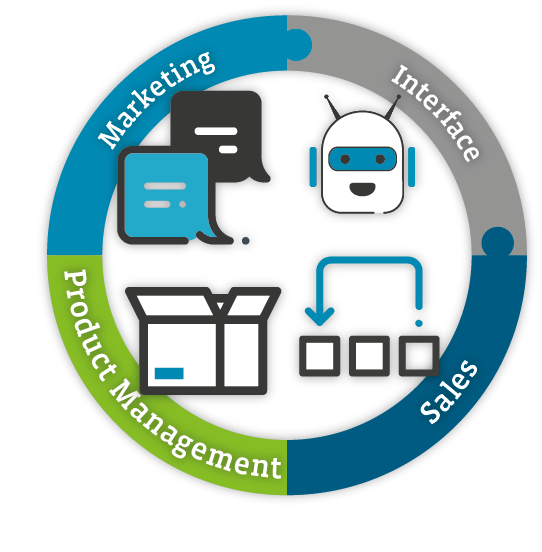This short story underlines that artificial intelligence (AI) has long become part of our everyday lives, and usually almost unnoticeably. Already today, we would be lost without AI; our daily lives would be more cumbersome, require more effort and be less comfortable.
Artificial Intelligence in companies
While AI applications have long since taken a firm place in daily life, I wonder about its status in companies: What about the use of AI applications in business contexts? Which areas are the trailblazers? Where can we find inspiration and in which areas is there still a need to take action? Our recent Artificial Intelligence Experience Report, published together with the Technical University of Darmstadt, provides insights and describes how AI can successfully contribute to digital transformation once certain hurdles have been overcome. As part of the research for the report, specialists and executives from different companies were asked about the use of AI. Their views describe an interesting picture.
Especially in marketing, sales and product management, half of the enterprises surveyed are already relying on AI applications, with the majority of use cases coming from marketing. Why is that? The application of artificial intelligence can significantly improve and effectively personalize the customer relationship. But new AI solutions are also busy emerging in the areas of sales and product management—our respondents reported significant efficiency and productivity increases. This is also confirmed by my various discussions with decision-makers.

Sentiment analysis
Analysis of responses to image campaigns and headlines by customers, partners and competitors.
Content creation
Holistic creation of texts for corporate websites as well as automated matching and cross-referencing of such content.
Campaign monitoring
Automated analysis and control of marketing campaigns according to cost as well as success criteria.
Automated generation of offers
Automated generation of offers based on customers' speech inputs.
Automated request verification
Automated review of requests/claims to detect fraud as well as billing errors and speed up processes.
Demand generation management
Analysis of sales data to leverage sales activities in a more targeted manner.
Automated routing of sales inquiries
Processing of inquiries and automated routing to the competent persons.
Chatbots
Chatbots are used for promoting products and answering sales questions quickly and automatically without involving human contact.
Data-based customer segmentation
Classification of customers by characteristics and optimization in terms of providing superior search results, personalized offers, predicting purchasing behavior.
Intelligent product recommendation systems
Recommendation systems assess how strong the interest in certain products is based on previous orders from the shop and also searches for products that might interest the user.
Damage event forecasting
Analysis of damage events and provision of corresponding supporting information as well as actions to be taken by the customer.
Intelligent portfolio design
Personalized adjustment of product range and further development of product offerings based on it.
Usage analytics
AI-based evaluation of user behavior for the purpose of designing future products.
The maturity level of artificial intelligence use varies greatly between industries. Above-average use of AI applications is seen in IT, finance, the automotive sector, and the pharmaceutical and medical industries. This is also confirmed by another study about the ‘Use of artificial intelligence in German businesses’ published by the Federal Ministry for Economic Affairs and Energy.
Clearing the way
What could be the reason that many enterprises are still hesitant to use AI applications? For those looking to catch up on AI, our Artificial Intelligence Experience Report provides five key recommendations for action:
These are preparatory steps that can be taken right away! Once this foundation has been laid, nothing will stand in the way of increasing and successfully using artificial intelligence in your organization.
Conclusion
In my 2019 CEO Blog I provided an outlook of where we would stand at the end of 2021. Many more predictions have become reality since then. But my conclusion remains the same as two years ago.: “The technologies, solutions and daily assistants I just described are already available today. We only have to use them.”
Author
Additional links
To the CEO Blog

